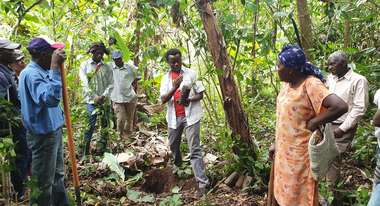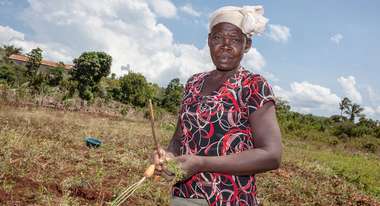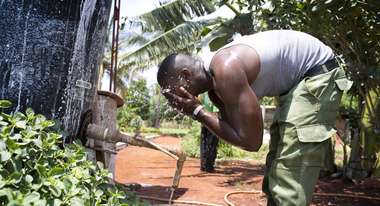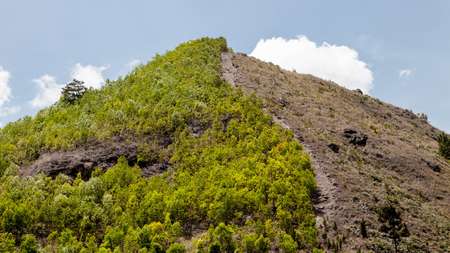
1,000,000 seedlings against climate change
We’ve all seen the pictures; large areas of the Amazon rainforest are burning. But the Amazon is not the only part of Earth’s green lung in danger. The forests of the Caribbean are also disappearing. Climate change and rainforest deforestation have effects on human and animal ecosystems worldwide as well as livelihoods. Small island states, such as Haiti, Cuba and the Dominican Republic, in particular are affected by the consequences of climate change.
Droughts, storms, floods
The frequency, but also the intensity of tropical storms has increased in recent years, and natural disasters such as droughts, floods and forest fires are not only a consequence of the climate crisis but are also accelerating it. The damage is devastating, both economically and ecologically. Rural areas and small farming families are especially hard hit. Storms, floods and droughts destroy entire harvests. Conventional agriculture and the lack of alternative sources of income mean that the already ailing ecosystem is further damaged by deforestation, soil erosion and loss of biodiversity.
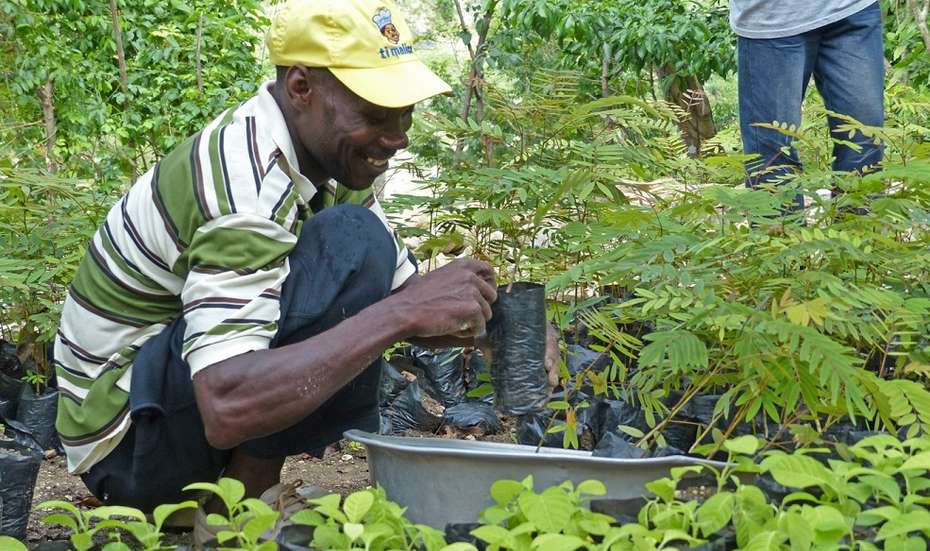
What is “ecosystem-based adaptation”?
Ecosystem-based adaptation measures (EbA) are nature-based solutions for adapting to the negative consequences of climate change, such as droughts or heavy rainfall events, which can lead to crop losses and, especially in the mountains, to severe erosion damage. Forests, agroforestry systems and other forms of adapted agriculture can help to mitigate these impacts. The project will develop solutions to help the Caribbean Biological Corridor become a regional model for improving adaptation to climate change and biodiversity conservation. Nature-based measures will be implemented as solutions in the areas of integrated water management and agriculture. Local communities and local government structures are actively involved in the planning and practical implementation from the outset. Based on the concrete experience gained from implementation, models will be developed that are disseminated and further tested in the respective regions.
Forests for the climate
The Resilient Caribbean Communities project (“Comunidades Caribeñas Resilientes”/ “Communautés Caribéennes Résilientes”) offers solutions. Together with tropical forest foundation OroVerde and local partners, Welthungerhilfe is working to cushion the effects of climate change on ecosystems. This is done via erosion control measures, which can include planting hedges, regenerating previously forested areas or introducing agroforestry systems. Soil protection measures and adapted plant species can also help to preserve important livelihoods and mitigate the effects of climate change on the region. Increased biodiversity, i.e. a greater variety of native plants, and the reforestation of cleared rainforest are particularly important in this respect. New cultivation methods will improve the quality of the soil and thus secure harvests and income for the rural population.
From local to global
We work at all levels to sustainably anchor ecosystem-based adaptation strategies in the region. On the local level, Welthungerhilfe and its regional partner organisations involve representatives of local communities and small-scale farmers in planning, decision-making processes and evaluation. On the national level, we work with governmental structures such as environment ministries to achieve the political integration of ecosystem-based adaptation into national strategies, and on the supraregional level we work closely with the Secretariat of the Caribbean Biological Corridor to align our project goals with their objectives and visions – thus achieving greater reach. On the international level, we foster the exchange of knowledge and networking between relevant stakeholders at conferences and other meetings.
By consistently involving a wide range of actors from the public, politics, science and business, the results of the project can be sustained in the long term, since the needs of all parties are taken into account from the very beginning.
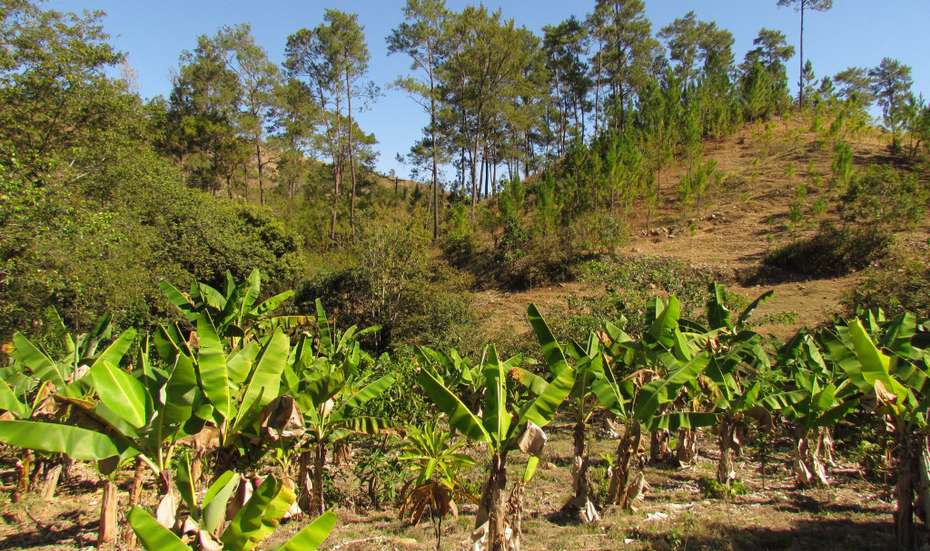
1,000,000 seedlings and 5,700 hectares of forest
In the course of the project, 1,200 hectares of forest will be reforested in Haiti alone. In the Dominican Republic a total of 3,500 hectares of rainforest will be created through a combination of reforestation and regeneration and another 510 hectares of forest will be created on the Cuban island. By the end of the project in 2027, more than 1,000,000 seedlings of various tree species will be planted. A total of 5,500 households will be involved in the project.
Project Contents
- Combination of erosion control and food security
- Creation of usage plans for land and reforestation of water catchment areas
- Improvement of the drinking water supply
- Introduction of fire protection groups
- Reforestation and regeneration of degraded areas
- Strengthening civil society organizations and community based organizations through workshops and trainings
The partner of OroVerde and Welthungerhilfe in Haiti is Concertation et Action pour le Développement(Concert-Action). In the Dominican Republic we are working with Centro para la Educación y Acción Ecológica - Naturaleza and Enda Dominicana, and in Cuba we are partnering up with Centro Oriental de Ecosistemas y Biodiversidad (BIOECO) and the Guantanamo Protected Area Authority (UPSA).
The project is funded by the German Federal Ministry for the Environment, Nature Conservation and Nuclear Safety.




